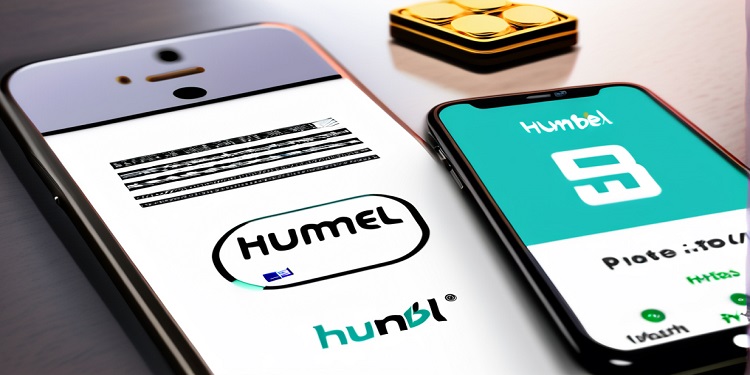Blockchain technology company HUMBL has successfully obtained a patent for its blockchain-based currency transaction system from the United States Patent and Trademark Office (USPTO). The patent, officially granted on October 15, covers the company’s innovative “System and Method for Transferring Currency Using Blockchain.” This approval represents a significant step forward for HUMBL, which has been developing the system over several years.
While HUMBL is not the first company to secure a patent in the blockchain space, the lengthy approval process sheds light on the regulatory challenges small businesses in the blockchain and cryptocurrency sectors continue to face. The patent approval highlights how navigating the complexities of intellectual property law can be time-consuming, particularly in rapidly evolving industries like blockchain.
A Blockchain-Based Digital Currency Bridge
HUMBL’s newly patented technology is designed to function as a system that facilitates currency transfers using blockchain. This technology aims to serve as a bridge between digital currencies and traditional fiat currencies, enabling seamless transactions between users anywhere in the world. The system would allow two parties to conduct transactions between their digital wallets without the need for an intermediary, using blockchain as the sole infrastructure for validating and securing the transfer.
According to the details provided by HUMBL, the payment system has the potential to revolutionize how digital and fiat currencies interact, offering users a more efficient and transparent method for transferring money globally. Such a system could significantly reduce the friction involved in currency conversion and cross-border transactions by eliminating the need for third-party intermediaries.
Regulatory Challenges and Extended Approval Period
Despite the seemingly straightforward nature of the technology, the approval process for HUMBL’s patent took over four years to complete. The long wait for approval highlights one of the key regulatory barriers faced by early-stage companies in the blockchain industry. According to HUMBL’s filings, there was nothing particularly unusual about the system that would explain why it took so long for the patent to be granted. However, the broader regulatory landscape for blockchain and cryptocurrency technologies may have played a role in the delays.
The USPTO’s average “pendency” time—the period between submitting a patent application and receiving a decision—is approximately 26.2 months. However, HUMBL’s experience significantly exceeded this timeline, raising questions about the efficiency of the regulatory process, especially for blockchain startups that are trying to innovate in a fast-paced environment.
During the waiting period, HUMBL managed to establish strategic partnerships to bolster its position in the market. In 2023, the company became the official digital asset service provider for the city of Santa Cruz, California. This partnership helped HUMBL maintain visibility and relevance in the blockchain space while waiting for the patent approval. The relationship with Santa Cruz also demonstrated the firm’s ability to forge strong ties with governmental entities, which could be a key factor in its long-term growth strategy.
CEO Comments on the Patent Process and Its Impact
Following the patent approval, HUMBL’s CEO, Brian Foote, expressed a mix of relief and concern over the challenges involved in securing intellectual property in the blockchain industry. He indicated that while the company is grateful for the patent’s approval, the lengthy process posed significant obstacles for a small business like HUMBL. He highlighted the financial burden that comes with navigating a protracted approval process, particularly in terms of legal expenses and the time spent addressing regulatory requirements.
Foote also suggested that such delays could have a stifling effect on innovation for small companies, as they may struggle to stay operational while awaiting critical approvals. The extensive timeframe and associated costs could deter other emerging blockchain firms from pursuing patents or developing groundbreaking technologies, potentially slowing the pace of innovation in the sector.
Looking Ahead: Potential for Growth and Innovation
With the patent now in hand, HUMBL is positioned to leverage its newly protected blockchain payment technology to expand its offerings in the digital currency space. The company’s system has the potential to streamline global transactions, making it easier for individuals and businesses to interact across borders. As more industries explore blockchain’s capabilities, HUMBL’s technology could become a valuable tool for enhancing financial transparency and reducing the complexity of currency transfers.
The patent approval also underscores the importance of regulatory adaptability in fast-growing sectors like blockchain. As startups like HUMBL continue to push the boundaries of digital finance, the regulatory environment will need to evolve to better accommodate the unique challenges posed by blockchain technologies.
